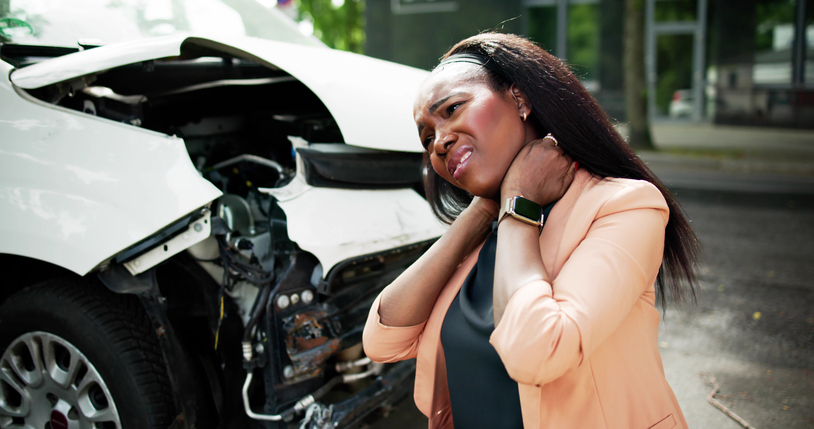
If you’ve been injured in an accident—whether it’s a car crash, slip and fall, or another type of personal injury incident—what you do in the hours and days that follow can have a major impact on your ability to recover compensation. Unfortunately, many people unknowingly make small missteps that can severely damage their case.
To protect your legal rights and maximize your potential settlement, here are the top mistakes to avoid after a personal injury accident.
1. Failing to Seek Immediate Medical Attention
Even if your injuries seem minor at first, delaying medical care is one of the most damaging things you can do. Not only does it put your health at risk, but it also gives insurance companies an opportunity to argue that your injuries aren’t serious—or weren’t caused by the accident at all.
According to the Centers for Disease Control and Prevention (CDC), timely treatment can prevent long-term complications and ensures that injuries are properly documented.
Tip: Always get evaluated by a healthcare professional immediately after an accident, and follow all treatment plans. Documentation is key.
2. Not Calling the Police or Filing an Accident Report
Whether it’s a car accident or a workplace incident, having an official record is essential. A police report or incident report provides neutral documentation of what happened and can serve as critical evidence later in your case.
Per the National Highway Traffic Safety Administration (NHTSA), reporting an accident is important not just for legal reasons, but also for public safety data.
Tip: Don’t just exchange information—make sure a report is filed and that you obtain a copy.
3. Admitting Fault at the Scene
In the aftermath of an accident, you may feel shaken, confused, or even guilty—but it’s vital not to admit fault, even casually. Phrases like “I’m sorry” can be misinterpreted and used against you later.
As outlined by NOLO’s Legal Encyclopedia, fault is a legal determination based on evidence—not emotions or assumptions at the scene.
Tip: Stick to the facts when speaking to others at the scene, and avoid speculation. Let the investigation determine fault.
4. Giving a Recorded Statement to the Insurance Company Too Soon
Insurance adjusters may seem friendly, but they’re not on your side. Their job is to limit the payout for the company. Giving a recorded statement early in the process, without legal representation, can lead you to say something that could be misconstrued or used against your claim.
The American Association for Justice advises being cautious when dealing with insurers, particularly early in the claims process.
Tip: Politely decline to provide a statement until you’ve spoken to a personal injury attorney.
5. Posting About Your Accident on Social Media
It’s tempting to update friends and family about your condition, but even innocent posts can be used as evidence. For example, a photo of you smiling at a birthday party could be misrepresented as proof that you’re not truly injured.
According to the American Bar Association (ABA), courts are increasingly allowing social media content to be used in litigation.
Tip: Stay off social media entirely while your case is active—or at least avoid discussing the accident or your health.
6. Failing to Document Everything
Memory fades quickly, and evidence can be lost. Take photos of the accident scene, your injuries, property damage, and anything else relevant. Keep copies of medical bills, treatment plans, correspondence with insurance companies, and time missed from work.
The Insurance Information Institute (III) strongly recommends documenting every detail after an accident to strengthen your insurance or legal claim.
Tip: Maintain a dedicated folder (physical or digital) for all accident-related materials. The more documentation you have, the stronger your case.
7. Delaying Contact with a Personal Injury Attorney
Many people wait too long to speak with a lawyer—either because they think they can handle it themselves or they’re unsure if they have a case. But waiting can lead to missed deadlines, lost evidence, and avoidable mistakes.
In most states, there’s a statute of limitations on how long you have to file a personal injury claim (often two years). Legal Aid organizations and state bar associations often emphasize the importance of timely legal consultation.
Tip: Most personal injury lawyers offer free consultations. There’s no harm in speaking with one early to understand your rights.
8. Accepting the First Settlement Offer
After an accident, the at-fault party’s insurance company may offer you a quick settlement—but don’t take it without understanding the full extent of your damages. Once you accept, you typically waive the right to pursue additional compensation—even if your injuries worsen.
The National Law Review notes that early offers are often lowball attempts to minimize payouts.
Tip: A lawyer can help evaluate whether a settlement offer is fair and push for the compensation you truly deserve.
Protect Your Case from the Start
Being injured in an accident is overwhelming enough. Don’t let avoidable mistakes stand in the way of your recovery—both physically and financially. By acting thoughtfully and seeking qualified legal help early on, you can build a strong foundation for your case and improve your chances of receiving full and fair compensation.
If you’ve recently been in an accident and aren’t sure what to do next, don’t wait. Reach out to a trusted personal injury attorney in your area, such as Fenimore Injury Law if you are in Florida, who can guide you through the process, advocate on your behalf, and help you avoid missteps that could hurt your claim.







